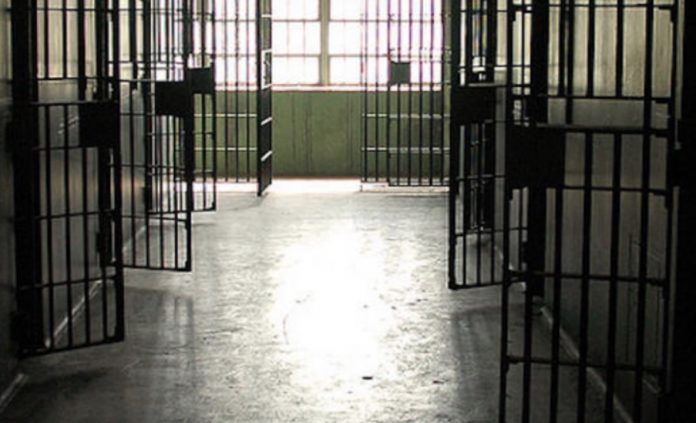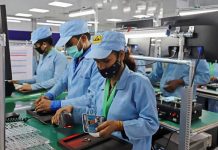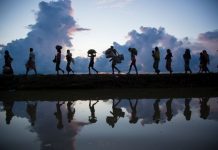This article has been written by Sneha Jaiswal, from Christ (Deemed to be University) Delhi NCR. This article highlights an issue of congestion in prisons amid the pandemic and its effects on the prisoners with viable solutions granted by the Supreme Court of India in the case of In Re : Contagion Of Covid 19 Virus vs G. Pragasam.
Table of Contents
Introduction
The country is experiencing a “historic rise” of COVID-19 cases. Overcrowding in prisons is a severe problem that is increasingly spreading all over the world. It has been wreaking havoc on the criminal justice system and has now spread to prisons. Overcrowding is more complicated than what the outside observer sees. The prison systems began to fill up with a tremendous influx of inmates. This enormous rate of increase has largely contributed to the world’s current prison overpopulation. In essence, the prisons are still overburdened. In the midst of the pandemic, jail officials are finding it nearly impossible to keep up with their facilities and manage their inmates. Overcrowding has the detrimental effect of preventing inmate segregation, which can lead to contagious infections and hasten the effect. As a result of this, infected inmates disseminate their influence to other prisoners.
In re : contagion of COVID-19 virus – an overview
On March 16, 2020, the honourable Supreme Court of India took suo moto cognizance of overcrowding of prisons across the nation and stated that it is not easy for jail inmates to maintain social distancing in order to avoid the spread of coronavirus. A bench led by Chief Justice of India N V Ramana mentioned the rapid spread of the coronavirus among the prisoners of congested prisons is a matter of great concern. In the middle of the pandemic, excessive crowding in prisons can have disastrous consequences for prisoners. With more cases of COVID-19 being reported, more sophisticated and preventative measures are needed to prevent infection and spread within prisons.
In its order in In Re: Contagion of COVID-19 Virus in prisons, the Supreme Court emphasized the importance of taking adequate steps to prevent the virus from spreading in prisons and ordered the formation of High-Powered Committees (HPCs) in each state to recommend interim bail, parole, or furlough in order to reduce overcrowding. To eliminate delays, prisoners who were released on bail were granted the same treatment without any review. According to this order, prisoners who were freed on parole owing to COVID-19 have been ordered to be out on interim bail for a minimum of 90 days. The need for de-congestion is a subject concerning the health and right to life of both jail inmates and police officers working. To lessen the effects of COVID-19, this Court must effectively balance concerns about the criminal justice system, health risks, and rights of the convicts.
Honourable Supreme Court ruling with regard to congested prison
In view of the lock-down due to the pandemic, the Supreme Court of India ordered all States to consider releasing some prisoners on parole to relieve prison overcrowding and to form a ‘High Powered Committee’ to make a decision on the concerned matter. To prevent overcrowding in prisons, the Hon’ble Court decided that offenders serving less than seven years in prison be freed on parole. The Supreme Court has ruled that the police would not conduct arrests in violation of the guidelines set down in Arnesh Kumar v. State of Bihar (2014), which said that arrests should be an exception in cases where the crimes are punishable by less than seven years of imprisonment.
The Court mentioned that this Court, being the sentinel on the qui vive (watchful guardian) of the fundamental rights, must strictly control and limit the authorities from arresting accused in violation of the principles given out by this Court in Arnesh Kumar v. State of Bihar (supra) during the pandemic. “Each state shall constitute such a committee to determine which class of prisoners could be released on parole or interim bail for such period as may be appropriate,” the Chief Justice of India instructed while directing the formation of a High-Level Committee in consultation with the State’s Legal Service Authority.
The High Powered Committee would also be free to decide which prisoners should be released based on the nature of the offence, the number of years to which he or she has been sentenced, the severity of the offence with which he or she is charged and is facing trial, or any other relevant factor that the Committee deems appropriate. It also instructed the high-powered committees to consider the release of new inmates by adopting the National Legal Services Authority‘s rules on the matter.
It also stated that the High Powered Committee would consist of the Chairman of the State Legal Services Committee, the Principal Secretary (Home/Prison) by whatever designation is known as, and the Director-General of Jail, to determine which prisoners can be released on parole or interim bail for whatever period is deemed appropriate. It further stated that the Commissioner of Police of Delhi shall also be a member of the High Powered Committee, Delhi.
Guidelines to ensure decongestion in prison amid COVID-19
The World Health Organization and other international organizations issued a statement emphasizing the increased vulnerability of inmates as a result of the COVID-19 outbreak. Despite the fact that everyone is vulnerable, prisoners in jail/correctional homes are at the greatest danger due to the closed prison environment and contact in common living space. In order to comply with the provisions of Article 21 of the Indian Constitution, it is now necessary to limit the spread of coronavirus within jails. Overcrowding in prisons is a concern in various nations, including India, and the government has urged prison officials to provide basic medical care to individuals who refuse to leave the prisons.
“There is a requirement for effective management of the pandemic from within the prison walls so as to defeat this deadly virus.” The court also highlighted that certain inmates might be unwilling to be freed due to their social backgrounds and fears of becoming infected with the virus, and instructed authorities to guarantee that all inmates have access to competent medical care. It also directed the State Governments/ Union Territories to undertake a vaccination drive in the prisons across the nation. Referring to a judgement, the Supreme Court of India asked authorities not to arrest mechanically in cases where the maximum sentence is up to seven years of jail term.
Also stated that there is a need to strictly regulate and limit the authorities from arresting suspects in violation of established criteria by this court. The authorities have been directed to guarantee that all convicts are given adequate medical care. The spread of the COVID-19 virus in jails should be prevented by regular testing of inmates as well as jail employees, and urgent treatment should be made available to both inmates and employees.
It is vital to maintain daily hygiene and sanitation standards, and appropriate safeguards must be taken to prevent the fatal virus from spreading among inmates. Many prisons are overcrowded and prisoners suffer from overcrowding and have been neglected for a long time, and as a result, they are less prepared to even begin with basic preventative and control measures related to a health pandemic in terms of general infrastructure, equipment, and human resources.
Challenges for implementing the guidelines
Overcrowding in prisons persists in most nations, and it is one of the most significant barriers to providing safe and healthy detention surroundings in accordance with fundamental human rights. The Bench stated that the spread of COVID-19 in overcrowded prisons with inadequate sanitation, hygiene, and medical facilities is a massive concern. It will also compromise infection control efforts in many prison systems, increasing the danger of infection, amplification, and spread of COVID-19. It is the most difficult task to provide a safe and hygienic environment to the inmates.
The COVID-19 pandemic has escalated the prison system’s difficulties, posing serious challenges for women imprisoned. Due to their everyday interaction with convicts on a daily basis, officers and healthcare professionals working in prisons are similarly exposed to an increased risk of infection. Women do not have equitable access to gender-sensitive health systems, proper nutrition, or protection from abuse within the prison, resulting in an increased risk of sexual violence, and are vulnerable to communicable diseases with contact.
Many prisons across the world have explicitly barred visits for a certain period of time. A complete prohibition might be justified since it is not only necessary to prevent inmates from contact with the virus from the outside world, but it is also necessary to protect their relatives and family who may come into touch with the virus while commuting or waiting in large groups outside prisons. Restricting legal representation’ visits might heighten anxiety and have an impact on the right to a fair trial. As prisoners are equally concerned about the safety of their families, a complete lack of communication would not only add to their anxiety, but might also lead to undesired situations in prison, such as aggressive behaviour, rioting, and so on.
Lack of interaction with family members may make the prison atmosphere tedious, while a lack of mental and physical stimulation, as well as just plain boredom, can lead to dissatisfaction and anxiety. This atmosphere enhances high-risk practices such as drug usage and sex between same-sex. Some people engage in these kinds of activities in order to avoid boredom. If left unchecked, risky lifestyles can lead to disease transmission from one prisoner to another, posing a severe public health danger. A prisoner’s sentence does not include contracting any illness while imprisoned. When the disease is potentially lethal, as it is with HIV/AIDS or COVID-19, this aspect becomes much more important.
Right to health is essential to the right to life
The Court has also stated that inmates are more vulnerable to communicable illnesses. Therefore, it has expressed the view that in order to guarantee the right to life enshrined under Article 21 of the Indian Constitution, it is obligatory that the jails should be decongested and conditions within the jails must be improved, to enable the provision of all the measures that are being circulated by the government for all people to follow in society at large.
Despite the fact that the Indian Constitution does not mention a fundamental right to health, the Supreme Court has recognized that the right to life covers a similar interest and has embedded a constitutional obligation to provide healthcare to all. The Model Prison Manual affirms every prisoner’s right to basic health care, regardless of constitutional rights. A balanced meal, medical treatment, access to clean drinking water and lodging, as well as compartments with adequate ventilation and lighting, are among the prisoners’ rights. The burden of maintaining the dignity of inmates falls on the state. However, the Supreme Court stated in March 2020 that deplorable prison conditions exist. It ordered all states and prison authorities to take immediate action to ensure that proper medical care is available.
The guidelines included measures such as transferring prisoners for decongestion or medical assistance, adopting response plans in cooperation with medical professionals, and establishing monitoring teams. A significant percentage of inmates continue to test positive for the COVID-19. According to the India Justice Report 2019, unveiled that prisoners have a short life expectancy and are susceptible to a variety of infectious diseases. Despite specialized regulations and guidelines to combat diseases, manage prison hospitals, and schedule frequent health check-ups, such conditions still exist. In reality, prisoner hospitals operate in a haphazard manner. They frequently lack enough equipment, and the quality of therapy is dependent on overworked staff.
The capital of India sets an example for all other states and union territories
In this context, the Bench was reminded of an instance of Delhi, where the prison population is updated on websites. Other states must adopt such initiatives, and should be embraced as good practice. Furthermore, all High Powered Committee decisions must be published on the websites of the respective State Legal Service Authorities/State Governments/High Courts in order to ensure that they are accessible to the public.
Other perks of improving conditions in overcrowded prisons
The building or enhancing prison capacity can help to alleviate prison overpopulation. Other options for avoiding overpopulation in prisons can also be considered. That is stated in the Supreme Court of India’s guidelines about what can be done to improve conditions in overcrowded prisons. Overcrowding in prisons is a major contributor to issues such as low staff morale, security, and control concerns, increased health and wellbeing difficulties for both staff and inmates, increased conflict and violence, and failure of rehabilitation resulting in increased re-offending.
Conclusion
Prison overcrowding or overpopulation in prisons is a hard issue to solve. To counter this global threat, immediate action should be taken. Despite the numerous guidelines issued on the nature and position of prisons and prison systems around the world, there are still congestion issues in prisons. While taking note of it, during the pandemic, it has become a serious concern not only for prisoners but also for staff and people connected to it. However, there is an urgent need for the implementation of the guidelines issued by the honourable Supreme Court of India for combating the COVID-19 pandemic and to safeguard prisoners from the wrath of coronavirus.
References
- https://blogs.lse.ac.uk/socialpolicy/2020/10/07/do-prisoners-in-india-have-a-right-to-health/
- https://www.barandbench.com/columns/crisis-making-from-decongestion-to-recongestion-in-prisons
LawSikho has created a telegram group for exchanging legal knowledge, referrals, and various opportunities. You can click on this link and join:
 Serato DJ Crack 2025Serato DJ PRO Crack
Serato DJ Crack 2025Serato DJ PRO Crack











 Allow notifications
Allow notifications


